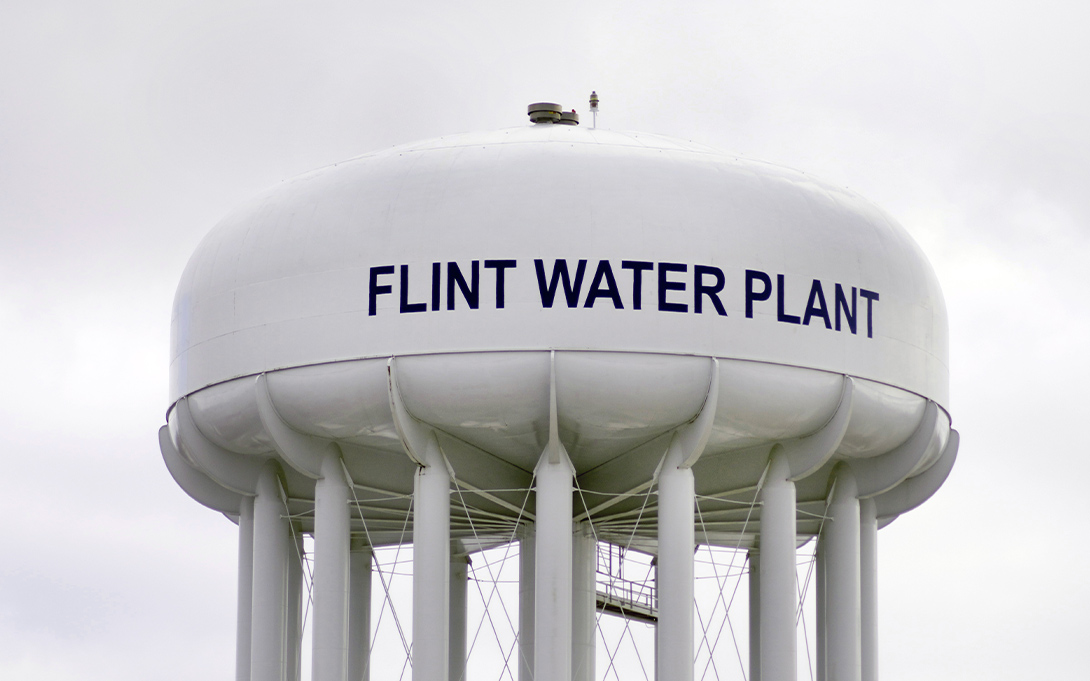
Eight years ago, the Flint water crisis captured national attention when the city’s tap water was shown to be contaminated with lead. Since then, researchers have been rigorously studying this crisis and measuring the effects of this lead exposure on Flint’s youngest residents. A November 30 Policy Talks @ the Ford School event, “Lead in the water: What are the educational impacts on Flint students?” presented by the Education Policy Initiative examined that issue.
The panel featured Dr. Mona Hanna-Attisha - recognized as one of USA Today’s Women of the Century for her role in uncovering the Flint water crisis and leading recovery effort - alongside Dr. Sam Trejo, Assistant Professor of Sociology at Princeton University, and newly-appointed Flint Community Schools Superintendent Kevelin Jones.
Trejo began by specifically looking at the effects on reading achievement, math achievement, and rates of special needs. Dr. Trejo explained, “there were meaningful impacts of the Flint water crisis on academic achievement in Flint. We found that there was a .14 standard deviation decrease in math achievement and a 9% increase in special needs.”
Still, there was little difference in the academic outcomes of school-age children living in homes with lead pipes compared to those in homes with copper pipes, suggesting that community crises may have effects on health and well-being beyond those tied directly to exposure to lead in the water supply.
Jones discussed the important role of educators in providing students clean bottled water as well as emotional support to combat the long-lasting psychosocial effects of this crisis. It wasn’t until 2021 that the district was able to install hydration stations throughout all of Flint’s schools, ensuring students had access to clean water fountains and schools no longer had to rely on bottled water.
He explained, “We have come a long way, but we still have a long way to go.”
He also commented on the necessary role of policymakers in supporting communities such as Flint.
“Don’t come into our communities just to get a vote. Come in to find out what we really need. Listen to the heart of the matter before going to take a vote on matters you never had to live through.”
Hanna-Attisha said her Flint patients reported symptoms early on, before government officials admitted that Flint’s water supply was contaminated.
She noted, “The patients knew something was wrong - in their gut they knew something was wrong.”
Hanna-Attisha emphasized the effect of long-standing social inequities in creating this crisis. “This is a city that didn’t have the resources to go out and buy bottled water. This is a city with about a 60% child poverty rate. This is a city that has been ignored for a long time.”
She also discussed the important role of community resilience and activist efforts in mitigating the impact of the crisis and expanding resources for residents including new early child care centers and mental health initiatives.